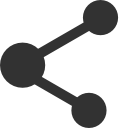PepsiCo Inc. is a beverage and snack food company. With 140,000 employees in more than 200 countries and territories worldwide, and sales of $29.3 billion in 2004, it is the fourth largest food and beverage company in the world. The company is headquartered in New York City. PepsiCo was founded in 1965 through the merger of PepsiCo, Inc. and Frito-Lay, Inc. The company has nearly 100 subsidiaries, mainly PepsiCo Beverages, Frito-Lay (fast food restaurants), Beer Smack Restaurants (serving Italian-style baked pies, etc.), North American Transportation Company and Wilson Sporting Goods. The company's subsidiaries are widely distributed, covering 48 states within the United States and more than 100 countries and territories abroad.

PepsiCo, Inc. is one of the world's most successful consumer goods companies, employing 140,000 people in more than 200 countries and with 2004 sales of $29.3 billion, making it the fourth largest food and beverage company in the world. PepsiCo was ranked 166th on the Fortune Global 500 in 2004 and was recently named Fortune's No. 1 "World's Most Admired Beverage Company" for the second consecutive year. PepsiCo was ranked in the top 10 of Forbes magazine's "America's Most Valuable Corporate Brands" in 2004, and its PepsiCo brand was ranked 23rd among the world's most valuable brands by Business Week in August 2003.

PepsiCo's predecessor, the PepsiCo Company, was founded in 1898. In 1965, PepsiCo merged with Frito-lay, the world's largest manufacturer and marketer of snack foods, to form PepsiCo.
In October 1997, PepsiCo made a major strategic change to focus on its core brands by separating its Pizza Hut, KFC and Taco Bell restaurants into a separate publicly traded company, Tricon In 1999, PepsiCo spun off its Pepsi-Cola canned goods group (PBG) to focus on brand building and brand marketing.
In 1998, PepsiCo merged with Tropicana Products Inc., the world's number one producer of freshly squeezed juices. In 2001, PepsiCo received unconditional approval from the US Federal Trade Commission to acquire the world-renowned Quaker Oats Company for US$13.4 billion, making it the world leader in non-carbonated beverages. The combined company will focus on strong demand for its casual foods and beverages business. PepsiCo International, responsible for nearly 200 markets outside the US and Canada, leads the development of PepsiCo's food and beverage businesses outside North America.
While many of PepsiCo's brands are over 100 years old, the company as a whole is still relatively young. PepsiCo was formally established in 1965 with the integration of PepsiCo and Fidori. Pepsi acquired Pure Conner in 1998 and integrated Quaker (including Gatorade) in 2001.

Pepsi products cater for a wide range of needs and preferences - from recreational categories to products that contribute to a healthy lifestyle
In 1898, Caleb Bradham, a North Carolina pharmacist, invented Pepsi and claimed the drink would cure indigestion, and Pepsi began producing soft drinks in cans as early as 1948. The success of the 'Taste Challenge' in the mid-1980s temporarily catapulted PepsiCo to the number one position in the industry, but then PepsiCo returned to the number two position, which it continues to hold today.
PepsiCo's leading product is PepsiCo. The company wanted to increase its sales in international markets. This is done by changing the packaging design and tapping into the potential of markets such as China, India and Russia. The new marketing plan will use blue as the main colour to counter the red colour of Coca-Cola in its packaging and advertising. The company hopes that this will highlight the difference between the products. So now the new PepsiCo packaging is entirely blue, except for the PepsiCo red, white and blue logo.
PepsiCo has also found success with other beverage products, including Mountain Dew drinks. The company also started a joint venture with Lipton, a leader in the production of bottled iced tea.

In June 1998, the company launched Pepsi One, a new drink with only one calorie, and spent US$100 million on Cuba Gooding Jr as the spokesperson for the product. In addition, Frito-Lay has worked hard to achieve satisfaction with its new generation of crisps, with new low-fat and appetising products in the range.
Pepsi's recent success in replacing Coca-Cola as a partner for branded beverages distributed by Disney's Dixon International Field of Anaheim has opened up a business relationship between Pepsi and Disney counterparts. In addition to the fact that Disney had previously distributed only Coca-Cola, Pepsi has taken a major step forward, mainly by shifting its focus to mineral water production, which is much more profitable than canned drinks, and by becoming the beverage sponsor for the film The Phantom Menace.














